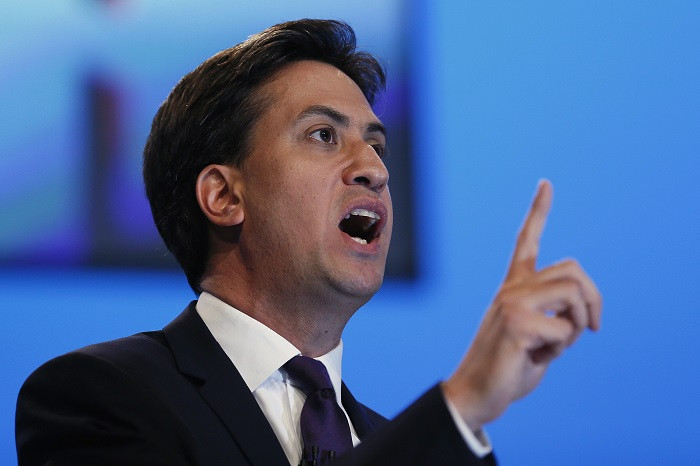Miliband Takes Zero Hours Pledge to Scotland in Bid to Boost 'No' Campaign

Ed Miliband's announcement that a Labour government would "end the exploitation" of zero hours contracts was probably more significant for where he made it than for the content itself.
In fact, there was some disappointment from unions and others at the cautious nature of his proposal that, after 12 months regular work an employee should be entitled to a proper contract. His original idea had been for a 12 week cut off.
And it was hard to escape the feeling the announcement had been rushed out to try and regain some political momentum as the economic recovery continued to boost David Cameron, and for fear the government might reveal their own policy on the issue first.
There were also suspicions Miliband had decided to listen to business bosses who he has alienated of late and water down his proposals.
But it was the fact this policy was unveiled as the shadow cabinet visited Scotland that was the more significant factor.
By working together we can ensure that the Tory Government in Westminster is just for one more Christmas.
Labour has come under attack for not engaging enough in the anti-independence "Better Together" campaign, which is currently losing ground to the SNP's Alex Salmond.
The latest "poll of polls" for The Independent newspaper, by John Curtice of Strathclyde University, shows the number of Scots backing independence has risen from 38% to 44% since February last year, while the "No" camp has seen its support drop from 62% to 56%.
Observers in Scotland believe this narrowing was inevitable as voters began to focus on the arguments, but many believe the gap will start to widen again as polling day in September approaches and minds are focused. Still, Labour feels the need to up its game.
But there is a difficult history for Labour in Scotland, whose politics it dominated for decades. It was finally ousted by Salmond's forces in 2007 after Tony Blair introduced devolution, partly because it was seen as the establishment party.
But it is still the only party that can effectively take on the SNP and it was noted that Salmond recently made a direct plea to Labour supporters to put aside their political loyalties and vote "Yes" in the referendum on the basis it was not a vote for his party.

A "No" vote is important for Miliband because, without Scottish Labour MPs, the party would find it difficult to win a majority in Westminster. Although talk that separation would guarantee the Tories permanent power in the rest of the country is overblown – Tony Blair didn't need Scotland.
The first sign of Labour upping its game north of the border came when former prime minister Gordon Brown, a hugely-respected figure in Scotland, joined the campaign. Now, by taking his shadow cabinet to Glasgow, Miliband is further beefing it up.
A large part of Miliband's pitch was to tackle the notion that independence was the best way for Scotland to avoid Tory rule from Westminster, insisting he believed there was a real chance Labour would win in 2015.
A Labour government in Westminster would be the best way to ensure social justice and fairness at work was spread across the country, something that would be more difficult if the UK was split, he said.
"The reason the SNP has nothing to say about ending zero-hours contracts is simple. They know that if Scotland left the UK it would be harder to end them either here or in what is left of the UK.
"If we had a border running between Scotland and the rest of the UK, governments on both sides would be under intense pressure from powerful interests to undercut the other by lowering tax rates for the richest or worsen wages for everyone else," he said.
"By working together we can ensure that the Tory Government in Westminster is just for one more Christmas," he added.
That is a powerful message in Scotland, but the down side of making his zero hours announcement alongside an intervention in the independence campaign, however, was that the two messages were in danger of tripping over each other with both losing some of their impact.
© Copyright IBTimes 2025. All rights reserved.






















